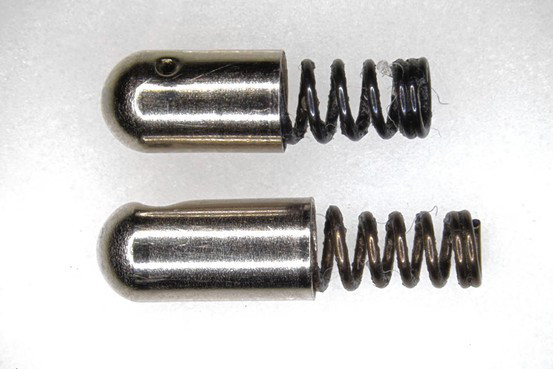Report: 74 Deaths May Be Tied To GM Ignition Defect
The recalled GM vehicles have ignition switches that can easily be turned into the “off” position because the switch is bumped by the driver’s knee or because the key is attached to a heavy keychain. When this happens, the vehicle’s engine stops and there is no power steering or power brakes. Most importantly, the airbags will not function, so if the car crashes after a stall-out, the airbags will not deploy.
Using this information as the basis of their search, the folks at Reuters sifted through the national Fatality Analysis Reporting System (FARS) database that pulls together crash information from local law-enforcement agencies. They were looking for single-car frontal collisions where the front air bags deployed and the driver or front-seat passenger was killed.
Between 2003 and 2012, Reuters identified 45 front-seat fatalities in the Cobalt and 29 in the Ion, for a total of 74 deaths it believes may be attributable to the faulty switch.
Reuters also looked at the number of these fatal incidents for vehicles in the GM recall compared to the rates for other vehicles from Ford, Honda and Toyota.
Both the Ion and the Cobalt had higher rates for these types of accidents than the other vehicles.
According to Reuters, there were 5.9 fatal Ion crashes where the airbags didn’t deploy for every 100,000 of the vehicles sold. The Cobalt had 4.1 such crashes per 100,000 vehicles.
The highest level from any of the cars used for comparison was the Ford Focus with 2.9 per 100,000 cars, followed by the Honda Civic with 1.6, and then the Toyota Corolla with 1.0.
Since the position of the ignition switch is not reported in all FARS data, it’s impossible to say that all of the instances in which an airbag didn’t deploy were because the switched had turned off, but it does seem to indicate a higher rate of airbag failure in these GM cars.
The chief research officer for the Insurance Institute for Highway Safety (better known as the place where they smash cars into walls for science) says the Reuters analysis suggests “that Cobalt and Ion are less crashworthy than the other models for which you’ve computed similar statistics,” but cautions that “it cannot be said definitively that the ignition switch problem” caused 74 deaths.
For example in accidents where a car crashes slides under the trailer of a truck during a collision, it’s possible that people in the front seat may be killed while the airbags would not have deployed.
Reuters also points out that its analysis may undercount the total fatalities for a number of reasons: It did not include two deaths of backseat passengers; the available data only goes through 2012, and it only looked at single-car accidents.
NHTSA’s Acting Administrator David Friedman has already stated that he believes there are more than the 47 known crashes acknowledged to be linked to the ignition defect, and now he tells Reuters that “The final death toll associated with this safety defect is not known to NHTSA, but we believe it’s likely that more than 13 lives were lost.”
Want more consumer news? Visit our parent organization, Consumer Reports, for the latest on scams, recalls, and other consumer issues.


